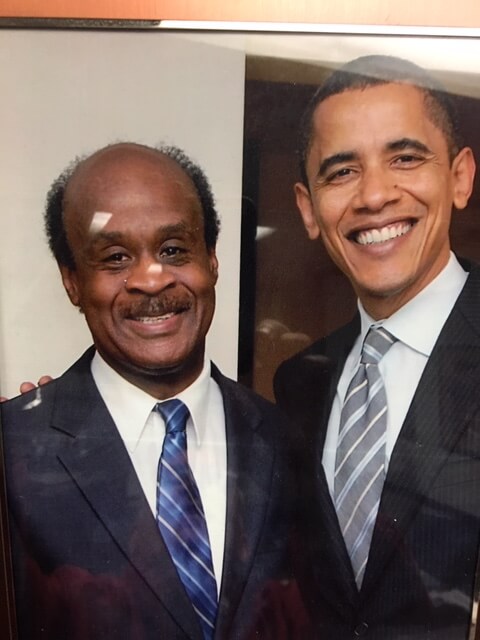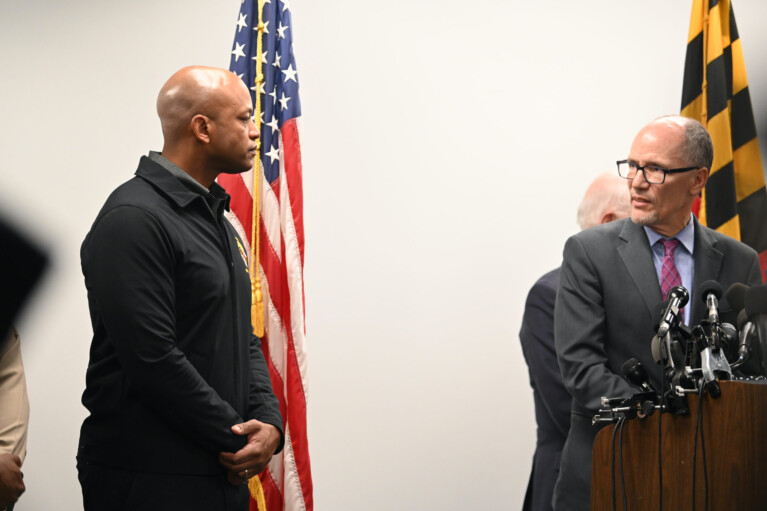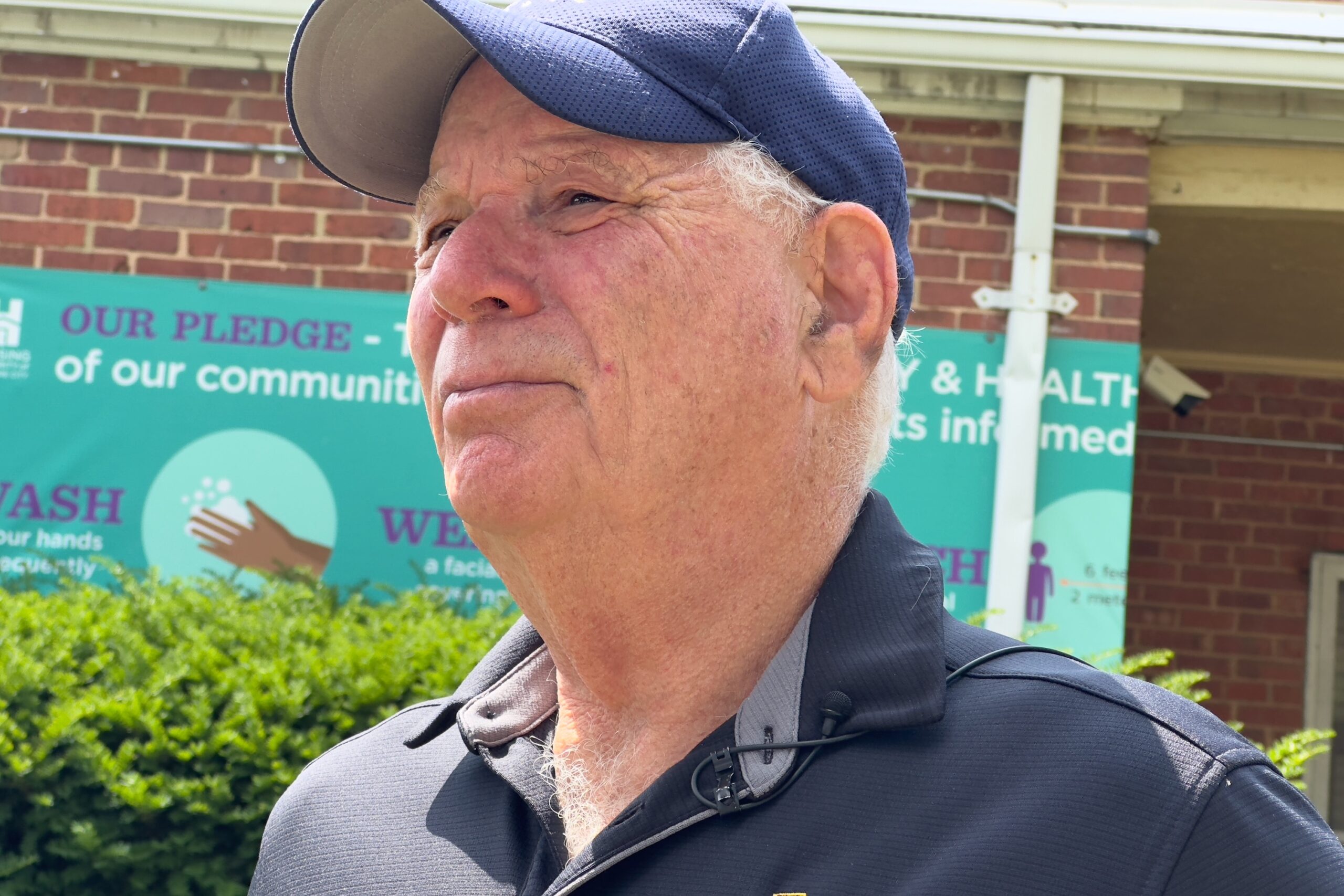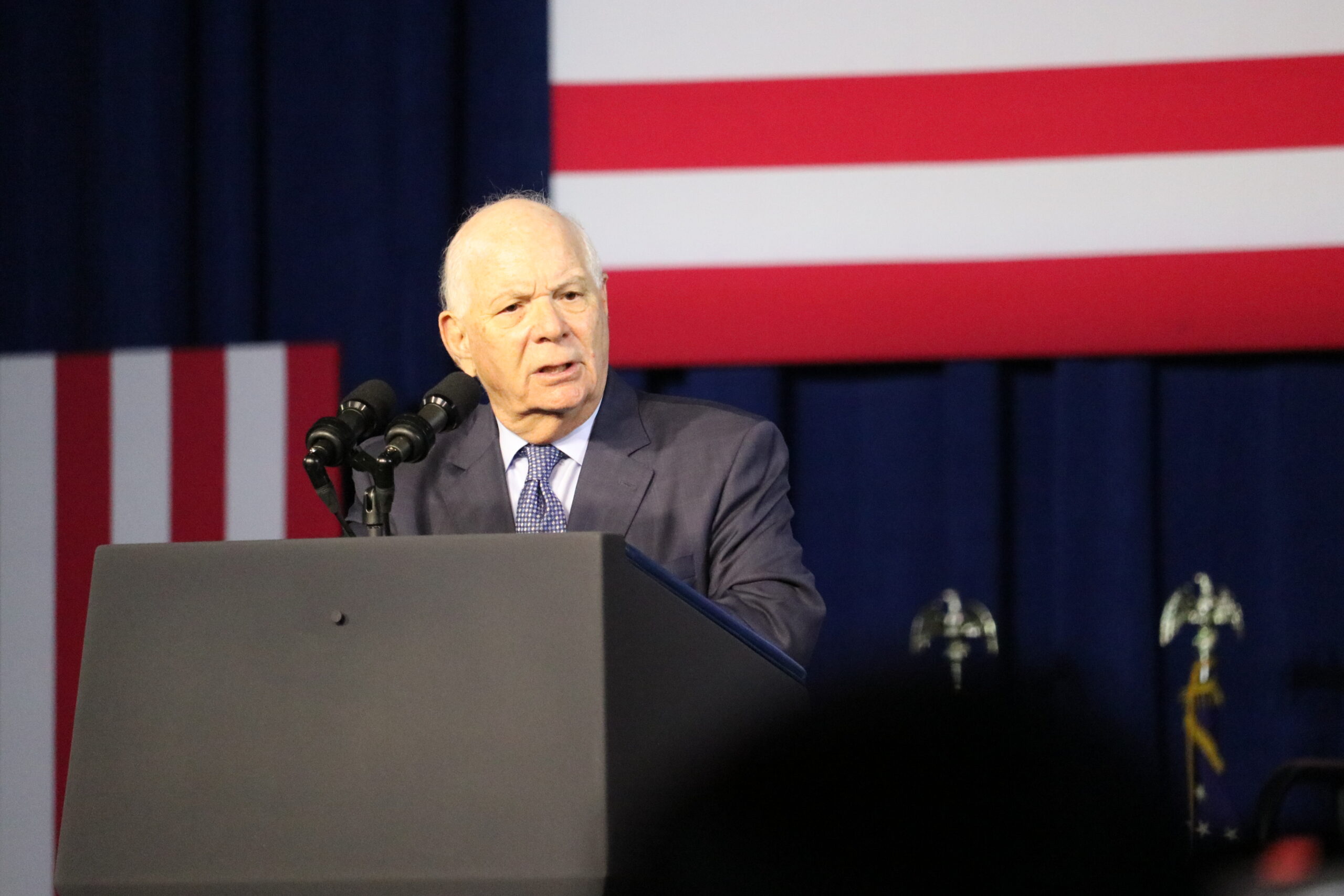Leggett Reflects: ‘I’m a Very Faithful Person’

Montgomery County Executive Isiah Leggett (D) steps down Monday after 12 years in office, ending a political career that goes back more than 30 years.
County Councilman Marc B. Elrich (D) takes the oath of office at noon.
Recently Leggett discussed his career with Maryland Matters reporter Bruce DePuyt.
This Q&A has been lightly edited for clarity and length.
Part II of two parts. [see part I here]
Maryland Matters: Montgomery County has a great reputation for planning. But it also is plagued by traffic and a lack of affordable housing, and there are times when certain communities are in moratorium, so you can’t build a school. So is the county’s reputation for thoughtful planning justified?
Ike Leggett: I would probably give a B in terms of planning. On the positive side we are a county [that believes] that we should be inclusive and bring people together and be transparent about what the impacts are, both positive and negative, about planning.
On the other hand, we sometimes develop a reputation that it is over-bureaucratized, and that it takes too long or the costs are too problematic, so you have to balance those things.
We’ve made improvements in things like permitting services, that is almost state-of-the-art compared to everything else. We get permits out faster than virtually anybody. We do a lot electronically. But you’ve had a reputation for over-bureaucratization, so you need to work through that.
MM: When incumbents run for re-election in Montgomery County, they almost always win. But when a term limit referendum was on the ballot in 2014, it passed overwhelmingly. How do you reconcile that apparent conflict?
Leggett: On some expenditures and some taxes, there was a miscalculation. In fact, the Council and I had debates about it. Because I thought on some tax increases and some expenditures, we probably needed to not have gone that far. So this is not something that’s new.
If you look at the taxes over a period of time, compared to many others around the area, Montgomery County’s taxes have gone up very little. In fact, the ratio of taxes to income is 5 percent lower.
But here’s the mistake that was made. There was one year where we had this spike, right? And so that spike distorts the whole last 15 years or so of county taxes, because people remember this [gestures upward] far more than they remember this [gestures downward]. And at that spike I said, ‘That’s a little too much, and we should reduce it.’
And we had expenditures that went up as well. And I said, ‘Do not increase expenditures because you have to find a way to pay for it.’ And the tax hikes that we ultimately ended up doing was too high. And [I knew that ] people are going to have seared in their mind was that spike. It’s like sticker shock. And no matter how you try to explain it, people get to a certain point where they’re not listening.
[I said:] ‘Do not do it.’ Because if you did — and there was this whole bit where people are already thinking about term limits —you’re going to walk right into it. And everything I said proved to be correct. Expenditures went up too high, the taxes to accommodate it went up high, it timed it perfectly with the issues associated with that, and that spike in that year created that dilemma.
MM: You faced sexual harassment charges from an aide, when you were on the County Council, many years ago, and there was a fairly sensational trial. Did you worry, even with the acquittal, that your career might be over?
Leggett: I’m a very faithful person. A spiritual person. And I looked at this as a situation that unfortunately happened. The county thought this was a nuisance matter and the county was willing to give a few dollars [settle] and you’d have never have heard of it.
I was the one who said, ‘No, I don’t want to do that. I don’t want the county to put a dime up. Because this is wrong. And I couldn’t have looked myself in the mirror if they had done that. They looked at it and they said, ‘This is crazy, this is just a nuisance.’
MM: So you’re the reason there was a trial.
Leggett: People know me. And people realized that I would not be guilty of something like this. I had enormous confidence and faith — even with an almost-all female jury — that they would look at the evidence and [say] it was crazy.
MM: But it can’t be fun to be on the news like that every night.
Leggett: Not it wasn’t. It was not. Especially for your family. But the fact of it is, none of this would have even discussed if I [hadn’t insisted on a trial].
MM: Why weren’t you Kathleen Kennedy Townsend’s running mate in 2002?
Leggett: [Chuckles] That’s a good question. You’re good. You don’t forget. I realize now — you’ve been around this thing a while.
I don’t know. I think she probably miscalculated. I think there may have been a fear — do you remember [Montgomery Journal columnist and developer] Blair Lee?
MM: Very well.
Leggett: Blair once said to me, ‘She feared that a serious female candidate running with an African-American running mate, that the state was not ready for that.’ I didn’t think much of it when he said that. But in some discussion with some of the people around [her], it was sort of like a safe option. And the person that she selected [former Naval Academy Superintendent Charles R. Larson] [was a] nice gentleman but really brought very little to the race.
I think he had been a Republican up until two or three weeks before she chose him. He was at the Naval Academy.
MM: It wasn’t long after 9/11, and it was thought he would be helpful for governing, because of his homeland security credentials.
Leggett: And I think what that did was send such a negative view among especially minority voters in the state, especially in this area, that the campaign never really recovered. And when you look at the polling from that point in time, it just started to implode.
So I don’t know. I thought it was a mistake at the time. But that was left up to them. And many people around the state, especially in this region, were extremely disappointed. Especially for a party that talks so much about inclusion and diversity. And there was a flier that the Republicans put out that was really devastating.
It started off, ‘the Democrats talk a good game. At one point in history they said [former Baltimore mayor] Kurt Schmoke would be an ideal person for governor or the U.S. Senate. It didn’t happen. They had Sen. [Clarence] Blount in Baltimore as once being a statewide leader or whatever. They said Wayne Curry would be a good candidate for running for govenror.
‘Most recently, they said that Ike Leggett would be a strong candidate for lieutenant governor. Democrats talk a good game; none of these things happen.’
And there was a big picture of [Republican gubernatorial candidate Robert Ehrlich’s running mate] Michael Steele. And the flier said, ‘And under Republicans, this will happen.’
I mean it was devastating.
MM: She’s Bobby Kennedy’s daughter. How does she not seize that moment?
Leggett: [Barely audible] I don’t know.
MM: What’s your advice for the next county executive?
Leggett: The financial stability of the county is enormously important. You have to ensure not only that the short term but the long term finances are sustainable. There are a lot of creative ideas that are out there. But oftentimes they require money to execute.
Inclusion in recognizing the community is important. There are some awfully talented people in Montgomery County and you have to be prepared to listen to all of them. Those you agree with. Those you don’t. Those you like. Those you dislike. Those from different parties.
And third, don’t lose the intuitive, instinctive nature that hopefully many people have. I got a ton of people around me, very talented people, but if something doesn’t feel right, doesn’t sound right, my gut, my instinct is not to react to the things that people are saying.
MM: What are the biggest issues that you expect the next Council and executive to have to deal with?
Leggett: Financial challenges that still loom. Though I think they’re in a much better position with a 9.4 percent reserve. [Laughs] So that’s key.
Other big items would include transportation, education, we’re up to 162,000 students at this point. And big issues that come to me oftentimes are over-crowding in the schools. But those are inter-related with other elements of government, both at the state and federal level.
And therefore you have to have a good working relationship with Annapolis. And you have to recognize that the governor and other people there are going to have a pretty good say about some of the things that are going to impact your county. I worked very hard in trying to ensure that I had a very good relationship with the governor.
MM: The Kirwan Commission will make its recommendations soon. Is that going to be a money grab where Montgomery throws more money in the put and ends up in an overall worse situation?
Leggett: That’s conceivable. Unless you’re very careful about the formulas and who pays and how much. And that we’re not an ATM machine here. We have a lot of [free-and-reduced-price lunch] students here. That’s part of the equation. You want to see an improved educational system, you want to see more funding, but you don’t want to do it in such a way that severely impacts what I consider to be the economic engine of the state of Maryland, which is Montgomery County. We have to be very careful about this.
I think in principle most people accept the idea you need more money, you need more accountability, and we need to improve the educational system. The challenge is going to be how it is paid for and who pays what and how that is distributed.
MM: The media coverage of suburban government and politics isn’t what it used to be. How much has that impacted things?
Leggett: Immensely. Because we end up relying too much on social media, which gives you quick-hit sound bites and an atmosphere that is not the most informed. It is quite partisan; it is quite polarized. And it’s not as comprehensive. You do not get the consistency, you do not get the thoroughness or the interest of stories. [Coverage is often] superficial. The impact has been immense.
MM: What are you going to do next?
Leggett: I’m going to retire. I want to do some writing, traveling, and just to take it easy for a period of time. And not get actively engaged in politics or such.
MM: Will you continue to teach?
Leggett: No, I don’t want to do that.
MM: Will you be a pundit?
Leggett: No. I’ve been working about 45 years non-stop, sometimes two and three jobs at the same time. This job has been enormous.




 Creative Commons Attribution
Creative Commons Attribution